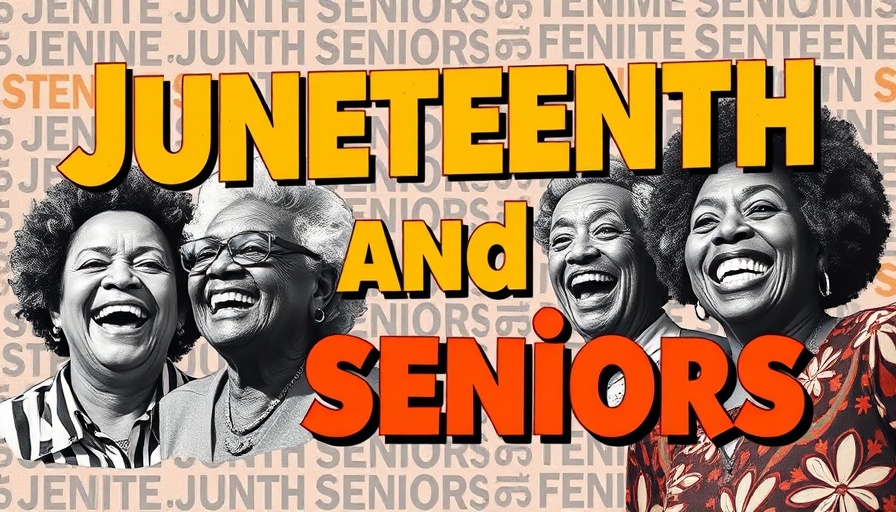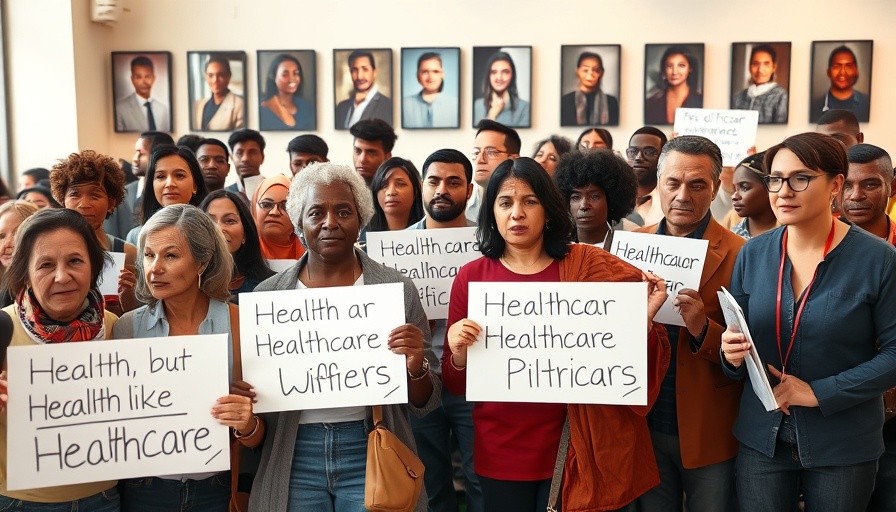
Honoring History: The Significance of Juneteenth for Seniors
Juneteenth, celebrated on June 19, holds a profound significance in American history, marking the day in 1865 when enslaved African Americans in Galveston, Texas, learned of their freedom—a full two and a half years after the Emancipation Proclamation. This pivotal moment symbolizes hope, resilience, and ongoing struggle for justice, especially for senior citizens who have lived through crucial civil rights movements. For many African American seniors, Juneteenth is more than an annual holiday; it’s a living testament to their heritage and a celebratory moment that honors the long fight for equality and recognition.
Connecting Generations: The Power of Storytelling
One of the most impactful aspects of Juneteenth is the opportunity it provides for storytelling. By sharing personal anecdotes and historical reflections, seniors can educate younger family members about their experiences, bridging generational gaps. This act of storytelling is not only a means of preserving history but also fosters deeper emotional connections within families. Engaging in these conversations allows younger generations to appreciate their heritage and the sacrifices made by those before them, enriching their understanding of identity and resilience.
Cultural Celebrations: Connecting Through Arts and Food
The celebration of Juneteenth often involves cultural festivities that highlight African American traditions. Hosting musical performances, poetry readings, and art exhibits allows seniors to engage directly with their cultural heritage. Creative arts such as crafts, quilting, and painting enhance personal expression and promote socialization. Additionally, food plays a crucial role in these celebrations—serving traditional meals, like red velvet cake or barbecue, transports participants back to their roots through flavors that tell stories of cultural significance and family gatherings.
Creating Inclusive Spaces: Celebrating Together
To foster a sense of belonging and unity, senior living communities can organize inclusive ceremonies. Reflective gatherings—such as candlelight services—enable residents to honor their ancestry collectively. This respect for one’s roots not only validates personal histories but also cultivates a supportive atmosphere where elders feel valued and appreciated. In these communal settings, emotional well-being is substantially enhanced through shared gratitude and acknowledgment of both struggles and triumphs.
Moving Forward: Lessons from the Past
Recognizing Juneteenth isn’t solely about remembering the past; it is also about envisioning a future enriched by understanding and compassion. As we honor this day, we are reminded of the enduring fight for justice and equality in contemporary society. The lessons learned from the struggles of aging seniors can galvanize today’s youth to continue advocating for change. This dynamic exchange not only strengthens family bonds but also promotes active civic engagement, emphasizing the ongoing relevance of Juneteenth in today’s social landscape.
Practical Steps to Celebrate Juneteenth with Seniors
Communities can take numerous actionable steps to honor Juneteenth, making the observance both meaningful and engaging. Start by establishing storytelling sessions that provide space for residents to share their cherished memories. Organize cultural workshops that celebrate African American history through art, music, and food. Consider inviting local historians or community activists to foster discussions on civil rights and its relevance today, creating a bridge between past struggles and present-day advocacy.
As we reflect on the roots of our society, let us not only celebrate Juneteenth but strive to carry its spirit into our everyday lives. By fostering connections, sharing stories, and advocating for equality, we honor the legacy of those who fought for justice. Join your community in celebrating this special day, and let the stories of strength and resilience inspire you to continue learning and growing together.
 Add Row
Add Row  Add
Add 




Write A Comment